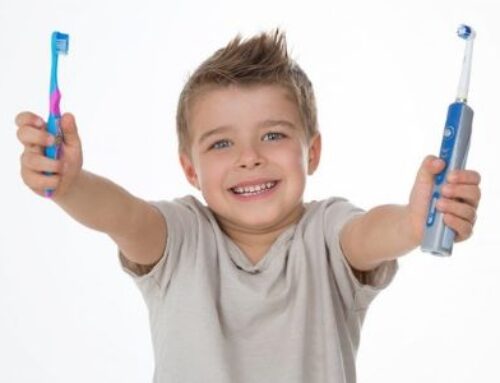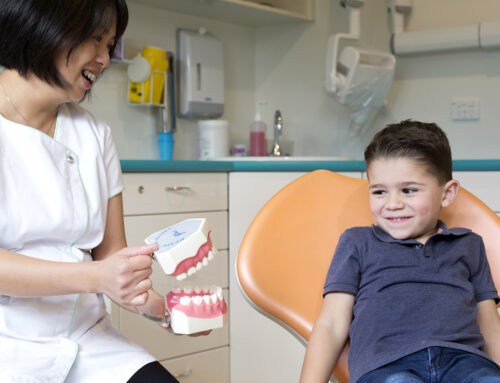Most of the time parents are happy just to get their kids to fall asleep, but have you ever noticed your child grinding their teeth? Teeth grinding, commonly known as “bruxism” is a problem that can lead to dental complications in adults. Bruxism is characterised by clenching and grinding of the teeth. But, is it bad for babies and children to be grinding their teeth?
What are the causes of teeth grinding?
While there is no hard evidence about the cause of babies grinding their teeth, the majority of experts believe that they do this to soothe sore gums during teething. Additionally, some think that your little ones are simply testing out their new smile to get used to the feeling of their teeth.
Teeth grinding in children can often be linked to other causes and in some instances, grinding can also relate to airway and breathing problems. In some cases, grinding may be temporary or may come and go. With persistent teeth grinding, the enamel surfaces of the teeth can wear down and cause sensitivity.
Evidence shows that teeth grinding in children can be related to one or a combination of the following problems:
- central (neuropathic disorder, anxiety)
- genetic and local (posture, mouth breathing).
It is common for children to grind their teeth when they are stressed or anxious, which can occur while the child is asleep or awake. There has been a positive correlation between children who have sleep-disordered breathing patterns (e.g frequent mouth breathing and snoring during sleep) and teeth grinding at night.
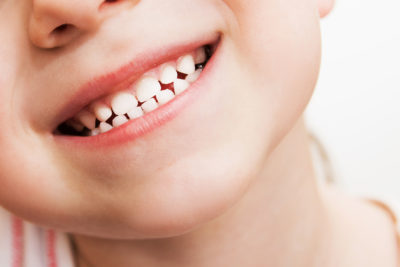
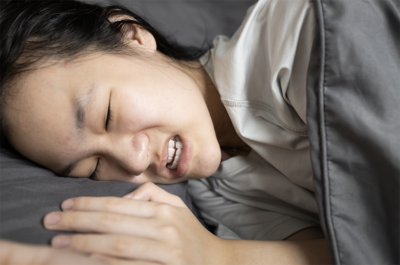
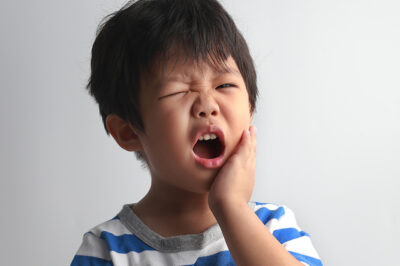
What can I look out for as a parent?
Often knowing if your child grinds their teeth can be difficult as they may not be aware of it themselves. The best thing to do is to check-in on them at night to discover whether they are making teeth grinding noises while they are asleep. Quite often, bruxism can be loud and some parents report hearing this from another room! Sometimes it is helpful to ask a sibling who may share the room with them. If your child complains of a sore jaw, or pain when chewing, these can also signal bruxism. Are they particularly worried or angry about anything? If these emotions coincide with the sound of teeth-grinding while they sleep, it’s time to pay attention. Kids experience a lot of anxiety in general, and you may need to address the root cause through other medical treatment or stress-relieving interventions, like a warm bath or soothing music before bedtime.
If grinding is occurring in relation to sleep disordered breathing, it may be time to have a discussion with a paediatric ear nose and throat specialist (ENT). They can assess the child’s airways and ensure there is no obstruction, or even consider a sleep study to check for sleep apnoea.
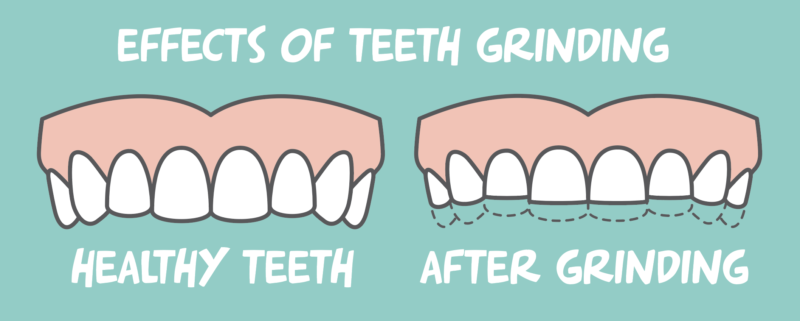
OUR TOP TIPS FOR BRUXISM:
1. DO NOT PANIC – bruxism can be common amongst children and can sometimes be temporary.
2. Talk to your dentist – they will be able to discuss potential causes for your child, and refer you for further assessment if required.
3. Look for other issues during sleep such as snoring, restless sleeping, mouth breathing and let your dentist know.
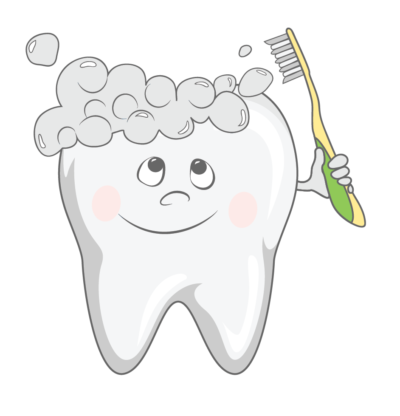
OUR FREQUENTLY ASKED QUESTIONS!
USEFUL DENTAL RESOURCES AND FURTHER READING
A great article from the team at BetterHealth Victoria
https://www.betterhealth.vic.gov.au/health/conditionsandtreatments/teeth-grinding
Thanks to our wonderful Oral Health Therapist, Carlee.
She works at both the Essendon clinics.
If you would like to talk to her or any of our amazing team, about this or any other questions you may have, please contact us on 03 9372 8960.


